Use this nursing care plan and management guide to help care for patients with Parkinson’s disease. Learn about the nursing assessment, nursing interventions, goals and nursing diagnosis for Parkinson’s disease in this guide.
What is Parkinson’s Disease?
Parkinson’s disease, or paralysis agitans, is a progressing neurological movement disorder that eventually leads to disability. It occurs after the age of 50 and increases in incidence with age. The disease affects more men than women and it’s the fourth most common neurodegenerative disease, with 50,000 new cases reported each year in the United States.
Parkinson’s disease is associated with decreased levels of dopamine resulting from the destruction of pigmented neuronal cells in the substantia nigra in the basal ganglia region of the brain. Neuronal pathways project from the substantia nigra to the corpus striatum, where neurotransmitters are key to the control of complex body movements. The loss of dopamine stores in areas of the brain results in more excitatory neurotransmitters than inhibitory neurotransmitters, leading to an imbalance that affects voluntary movement.
Initial clinical symptoms of Parkinson’s disease include tremors, subtle decrease in dexterity, decreased arm swing on the first-involved side, soft voice, decreased facial expression, sleep disturbances, rapid eye movement behavior disorder, decreased sense of smell, malaise, anhedonia, slowness in thinking (Hauser & Benbadis, 2020).
There are four cardinal signs of Parkinson’s disease, with two of the first three required to make the clinical diagnosis. These are resting tremors, rigidity, bradykinesia, and postural instability. With the introduction of levodopa, the mortality rate dropped by approximately 50%, and longevity was extended by many years (Hauser & Benbadis, 2020).
Nursing Care Plans and Management
The nursing goals for clients with Parkinson’s disease include improving functional mobility, maintaining independence in performing ADLs, promoting safety and preventing falls, achieving optimal bowel elimination, attaining and maintaining acceptable nutritional status, achieving effective communication, developing positive coping mechanisms, and educating the client and their family on the disease process and self-care strategies to manage symptoms and improve the overall quality of life.
Nursing Problem Priorities
The following are the nursing priorities for patients with Parkinson’s disease:
- Recognize and assess signs and symptoms of Parkinson’s disease.
- Monitor disease progression and assess motor and non-motor symptoms.
- Administer prescribed medications to manage symptoms, such as dopaminergic medications or anticholinergics.
- Provide support and education to patients and families about Parkinson’s disease, treatment options, and lifestyle modifications.
- Facilitate physical therapy and occupational therapy to optimize mobility, balance, and functional abilities.
- Monitor for and manage potential complications, such as falls, dysphagia, or cognitive changes.
- Offer emotional support and counseling to patients and families to cope with the impact of Parkinson’s disease.
- Coordinate care and referrals to specialists, such as neurologists or speech therapists.
- Schedule regular follow-up appointments to monitor disease progression, adjust treatment plans, and address any concerns or changes in symptoms.
Nursing Assessment
Assess for the following subjective and objective data:
- See nursing assessment cues under Nursing Interventions and Actions.
Nursing Diagnosis
Following a thorough assessment, a nursing diagnosis is formulated to specifically address the challenges associated with Parkinson’s disease based on the nurse’s clinical judgment and understanding of the patient’s unique health condition. While nursing diagnoses serve as a framework for organizing care, their usefulness may vary in different clinical situations. In real-life clinical settings, it is important to note that the use of specific nursing diagnostic labels may not be as prominent or commonly utilized as other components of the care plan. It is ultimately the nurse’s clinical expertise and judgment that shape the care plan to meet the unique needs of each patient, prioritizing their health concerns and priorities.
Nursing Goals
Goals and expected outcomes may include:
- The client will achieve the normalization and ability to maintain patent airways and respiratory status.
- The client will achieve and maintain a patent airway.
- The client will have clear breath sounds to auscultation and will have respiratory status parameters with optimal air exchange.
- The client will be able to cough up secretions and perform coughing and deep breathing exercises.
- The client will identify factors that elicit depressive reactions and use techniques that will effectively reduce the amount and frequency of these episodes.
- The client will be compliant with the therapeutic regimen.
- The client will be able to have effective speech and understanding of communication or will be able to use another method of communication and make needs known.
- The client will be able to use assistive devices and techniques to improve their ability to communicate.
- The client will be able to speak in an understandable way possible when necessary.
- The client will be able to understand communication.
- The client will be able to exhibit minimal frustration and anxiety with speech attempts.
- The client will be able to make needs known utilizing nonverbal methods if required.
- The client’s family will be compliant and supportive of the patient’s attempt at communication.
- The client will maintain functional mobility as long as possible within the limitations of the disease process.
- The client will have few if any, complications related to immobility.
- The client will have an adequate nutritional intake with no weight or muscle mass loss.
- The client will maintain adequate nutritional status with the use of nutritional support and will experience no complications from support.
- The client will show no signs of malnutrition status.
- The client will be able to swallow effectively with no incidence of aspiration.
- The client will be able to eat and swallow normally.
- The client will be able to ingest an adequate amount of nutrients without the dangers of aspiration.
- The client will be able to follow instructions and strengthen the muscles used for eating and swallowing.
- The client will remain safe from environmental hazards resulting from cognitive impairment.
- The client’s family will ensure safety precautions are instituted and followed.
- The client will remain in a safe environment with no complications or injuries obtained.
- The client’s family will be able to identify and eliminate hazards in the client’s environment.
- The client will exhibit improvement in emotional well-being.
- The client will use acceptable strategies to cope with problems and will have an improved sense of self-worth.
- The client will be able to access support systems, community resources, or counselors to assist in achieving adequate coping skills.
- The client and/or family will be able to exhibit an understanding of the disease process, medication regimen, and treatment plan of care.
- The client will be able to accurately verbalize an understanding of Parkinsonism and its treatment regimen.
- The client will be able to comply with the medication regimen and notify the healthcare provider if the client experiences untoward side effects.
- The client and/or family will be able to identify and demonstrate safety precautions to prevent injury.
- The client and/or family will be able to identify the need for long-term goals and the potential for end-of-life decisions to be made.
Nursing Interventions and Actions
Therapeutic interventions and nursing actions for patients with Parkinson’s disease may include:
1. Improving Respiratory Function
Parkinson’s disease is a neurodegenerative disorder that primarily affects movement, but it can also have significant impacts on other bodily functions, including respiratory function. Respiratory problems in Parkinson’s disease are commonly observed and can lead to reduced quality of life for patients. However, there are several strategies and interventions that can be employed to improve respiratory function in individuals with Parkinson’s disease.
1. Observe the client and assess energy level and endurance, and how these affect respiratory status.
Energy ability decreases with age and chronic diseases like PD. Pulmonary function impairment has been studied in PD, the most common type of Parkinsonism whereby the cause is unknown. Pulmonary dysfunction has been known as an autonomic disorder equated to non-motor symptoms of PD. abnormalities involving obstructive, restrictive, and mixed-type pulmonary dysfunction increase disability in PD clients (Post et al., 2019).
2. Assess respiratory status for rate, depth, ease, use of accessory muscles, and work of breathing.
Clients with early idiopathic PD had significantly lower respiratory muscle strength and higher central respiratory drive than those in age-matched healthy controls, according to a study. Abnormalities of peak expiratory and inspiratory flows were found in clients with relatively severe PD and without clinical signs or symptoms of respiratory problems. These changes can be explained by “muscle weakness” and hypokinesia, two symptoms intrinsic to PD. The main reasons for the upper airway dysfunction and restrictive pattern may be due to poor coordination, or rigidity of respiratory muscles (Post et al., 2019).
3. Auscultate the lung fields for the presence of wheezes, crackles, rhonchi, or decreased breath sounds.
Wheezing results from the squeezing of air past the narrowed airways during expiration which is caused by bronchospasms, edema, and obstructive secretions. Crackles result from the consolidation of leukocytes and fibrin in the lung causing an infection or fluid accumulation in the lungs. Decreased breath sounds may indicate alveolar collapse with little to no air exchange in the lung area being auscultated and usually results in poor ventilation.
4. Assess the client for pallor or cyanosis in nail beds and/or around the mouth.
This may indicate hypoxemia. Several studies have reported the preponderance of upper airway obstruction among Parkinson disease clients, resulting in chronic airflow limitation and, consequently, weakness, bradykinesia, or dysfunctional contraction of the striated musculature in the region of the upper airway, which has been considered to be major factors contributing to the development of secretion retention, atelectasis, and aspiration pneumonia (Axelerad et al., 2021).
5. Monitor the client for cough and production of sputum, noting the amount, color, character, and client’s ability to expectorate secretions and the client’s ability to cough.
Mucus color from yellow to green may indicate the presence of infection. Tenacious, thick secretions require more effort and energy to cough up and remove and may cause obstruction and stasis that may lead to infection. A significant number of Parkinson disease clients die due to pneumonia as compared with the general population (Axelerad et al., 2021).
6. Position the client in a high Fowler’s or semi-Fowler’s position, if possible.
This promotes maximal lung expansion. Dyspnea represents a prevalent symptom in the evolution of Parkinson disease, with approximately 40% prevalence in the symptomatology of clients as reported in a study. The presence of dyspnea correlates with the severity of the disease, decreased ventilatory function, motor fluctuations, dysphagia, and even neuropsychological symptoms such as anxiety and depression (Axelerad et al., 2021).
7. Turn the client in every two hours.
Repositioning promotes drainage of pulmonary secretions and enhances ventilation to decrease the potential for atelectasis. Dyspnea and subsequent ventilatory dysfunctions are considered to be symptoms of autonomic dysfunction. The obstructive and restrictive aspects, the potential drug effects, and abnormal central control of ventilation are partly responsible for the ventilatory dysfunction in Parkinson disease clients (Axelerad et al., 2021).
8. Encourage an increase in intake of fluids up to 3 to 4 L/day.
This provides hydration and helps to thin secretions for easier mobilization and removal. Parkinson disease can also lead to dysphagia, therefore, sufficient fluid intake can help with swallowing by moistening the throat and making it easier to swallow food and medications.
9. Perform postural drainage and percussion as ordered.
Postural drainage utilizes gravity to help raise secretions and clear sputum. Percussion may assist in the movement of secretions away from bronchial walls and enable the client to cough them up and increase the force of expiration. Some positions may be contraindicated for older adult clients. Airway clearance techniques, postural drainage, incentive spirometry, and breathing exercises may also be helpful (Saha et al., 2020).
10. Encourage deep breathing and coughing exercises every two hours.
This assists in lung expansion and helps in the dislodgement of secretions for easier expectoration. Deep breathing exercises can reduce the work of breathing by decreasing the respiratory rate and relaxing accessory muscles. Diaphragmatic breathing helps to ease the diaphragm, which reduces the activity of accessory muscles, hence reducing breathing difficulties. Apical, costal, and basal breathing helps to improve various segments of the lung (Saha et al., 2020).
11. Suction client if warranted.
The client may be too weak or fatigued to expel their own secretions. Respiratory complications in clients with PD is one of the most serious complication and a common cause of death. Evacuation of secretions must be performed by the nurse if the client cannot expel them effectively (Saha et al., 2020).
12. Administer oxygen as ordered. Monitor oxygen saturation by pulse oximetry.
This provides supplemental oxygen to benefit the client. Additionally, hyperbaric oxygen therapy (HBOT) has been suggested as a potential adjunctive therapy for PD. Research on the neuroprotective effects of HBOT has shown that hyperbaric oxygen can inhibit inflammation, reduce hypoxia, and improve nervous system microcirculation (Hsu et al., 2022).
13. Administer bronchodilators as ordered.
This promotes the relaxation of bronchial smooth muscles to decrease spasms, dilates airways to improve ventilation, and maximizes air exchange. The use of salbutamol and inhaled corticosteroids and their indications for asthma and COPd were each associated with a reduced risk of PD after adjustment for the use of care (Nielsen, 2018).
14. Instruct the client to seek help and stop smoking if the client is a smoker.
Smoking causes increased mucus, vasoconstriction, and increased blood pressure. A meta-analysis of observational studies revealed the inverse association between cigarette smoking and the risk of PD. Nicotine may also act as a stimulant to inhibit the action of the striatal dopamine transporter, increasing dopamine levels in the synaptic gap. In addition, cigarette smoking may be associated with cognitive impairment (Wang et al., 2022).
15. Assist the client in respiratory muscle training.
Given that reduced cough function is associated with decreased respiratory muscle strength, it may be possible to improve peak cough flow by exercising respiratory muscles. Respiratory muscle training programs have been utilized in clients with PD and other similar neurodegenerative disorders to improve pulmonary and swallowing function. Inspiratory muscle-training studies in clients with PD have reported improvements in inspiratory muscle strength and endurance (Reyes et al., 2018).
16. Provide information about chest PNF.
Chest PNF is an effective treatment tool and has established efficacy in respiratory conditions like COPD. it provides proprioceptive feedback to the respiratory muscles, which create reflex respiratory movement responses and improves the rate and depth of breathing. This also increases the activity of the diaphragm and abdominal muscles. The rigid chest wall muscles may get inhibited through autogenic inhibition and promote mobility to the chest wall (Saha et al., 2020).
2. Enhancing Sensory and Cognitive Function
Sensory impairments and cognitive decline, including difficulties with attention, memory, and executive functions, are commonly observed in individuals with Parkinson’s disease. However, there are several strategies and interventions that can be employed to enhance sensory and cognitive function in these patients.
1. Assess the client for depressive behaviors and causative events, and orient the client to reality as warranted.
Depression is common among PD clients, whether it is a reaction to the disorder or related to biochemical abnormality is uncertain. Identify specific problems and allow for the establishment of a plan of care. Reality orientation helps the client to be aware of self and surroundings. However, the assessment of depression in clients with PD is complicated by the fact that some symptoms of PD overlap with those of depression, such as masklike facies, insomnia, psychomotor slowing, difficulty concentrating, and fatigue (Hauser & Benbadis, 2020).
2. Identify the client’s medications currently being taken.
This assists with the identification of any misuse of drugs and side effects that may precipitate depressive symptoms. Anticholinergic drugs used for the treatment of motor symptoms of PD may exacerbate memory impairment. When possible, these medications must be avoided (Hauser & Benbadis, 2020).
3. Assess the client for the potential for suicide and suicidal ideation.
Clients who are depressed and who have already thought about a suicide plan are serious and need emergency help. In addition to the long-established associations between mental disorders and suicide, the physical limitations caused by PD and the well-known increased risk of suicide in older persons call for attention to the likelihood of suicide in clients with PD (Chen et al., 2021).
4. Monitor vital signs every four hours and PRN.
Antidepressants and other psychoactive medications may result in cardiovascular and cerebrovascular insufficiency. Amantadine can cause psychiatric disturbances, mood changes, and hallucinations. Autonomic dysfunction is common in clients with PD. Orthostatic hypotension often becomes a concern in late disease (Hauser & Benbadis, 2020).
5. Use a nonjudgmental attitude toward the client and actively listen to his feelings and concerns.
This establishes a trusting relationship and permits the client to discuss topics that can help them deal with in appropriate ways. PD clients often feel embarrassed apathetic, bored, and lonely which may be brought about by physical slowness and the great effort that even small tasks require. Encourage and assist the client in every effort possible to carry out the tasks involved in meeting their own daily needs to remain independent.
6. Prepare the client for deep brain stimulation (DBS).
DBS has become the surgical procedure of choice for PD. it is a form of stereotactic surgery. It does not involve the destruction of the brain tissue, is reversible, can be adjusted as the disease progresses or adverse events occur, and bilateral procedures can be performed without a significant increase in adverse events (Hauser & Benbadis, 2020).
7. Refer the client to a psychiatrist.
A psychiatrist with expertise in psychiatric complications of movement disorders may be consulted to rule out active psychiatric disease and screen for relevant past psychiatric history that may pose a contraindication to surgery, such as major depression and suicidality (Hauser & Benbadis, 2020).
8. Administer levodopa and carbidopa as indicated.
Levodopa coupled with carbidopa remains the standard of symptomatic treatment for PD. it provides the greatest antiparkinsonian benefit with the fewest adverse effects in the short term. Levodopa/carbidopa is introduced at a low dose and escalated slowly. Carbidopa inhibits the decarboxylation of levodopa to dopamine in the systemic circulation, allowing for greater levodopa delivery into the central nervous system (Hauser & Benbadis, 2020).
9. Administer selective serotonin reuptake inhibitors (SSRIs).
SSRIs are the most commonly used medications to treat depression in PD in clinical practice. However, several randomized controlled trials, systematic reviews, and meta-analyses have suggested that SSRIs may be no more effective than placebo in this situation. Positive results in randomized clinical trials have been demonstrated for paroxetine, which was well-tolerated and did not worsen motor function (Hauser & Benbadis, 2020).
10. Administer selective serotonin inverse agonists (SSIA), such as pimavanserin.
Pimavanserin was approved in April 2016 for the treatment of hallucinations and delusions associated with PD psychosis. It is the first drug to be approved for this condition. It not only preferentially targets 5-HT2A receptors, but also avoids activity at dopamine and other receptors commonly targeted by antipsychotics (Hauser & Benbadis, 2020).
11. Provide information about cognitive behavioral therapy (CBT).
CBT can help control impulse behaviors in PD. In a study of 45 clients with idiopathic PD and associated impulse control behaviors that had not responded to standard treatment, CBT significantly improved symptom severity, neuropsychiatric disturbances, and depression and anxiety levels (Hauser & Benbadis, 2020).
3. Improving Speech and Communication
Impaired verbal communication is common in clients with Parkinson’s disease due to the effects of the disease on the muscles used for speaking and swallowing, as well as cognitive impairments that may affect language processing and expression. This can manifest as soft or monotone speech, difficulty with articulation and pronunciation, and reduced vocal inflection. Many individuals with Parkinson’s disease experience changes in their voice, articulation, and overall speech clarity, making it difficult to be understood by others. However, there are various strategies and interventions that can be employed to improve speech and communication in these patients.
1. Assess the client’s ability to speak, language deficit, cognitive or sensory impairment, and presence of aphasia, dysarthria, aphonia, dyslalia, or apraxia. Presence of psychosis, and/or other neurologic disorders affecting speech.
Speech disorders are present in most clients with Parkinson disease, this helps identify problem areas and speech patterns to help establish a plan of care. During the course of this disease, 45 to 89% of clients report speech problems, and more than 30% find speech problems to be the most debilitating part of the disease (Hauser & Benbadis, 2020).
2. Monitor the client for nonverbal communication, such as facial grimacing, smiling, pointing, crying, and so forth; encourage the use of speech when possible.
This indicates that feelings or needs are being expressed when speech is impaired. Excessive mumbling, striking out, or non-verbalization clues may be the only method left for the client to express discomfort. It has been reported that clients with PD are less likely to participate in conversations as a result of their lack of confidence in communication when compared with healthy adults (Dashtipour et al., 2018).
3. Assess vocal loudness, intonation, and quality.
As the client is speaking, the vocal loudness, intonation, and quality, including the fluidity of speech and articulation, should be assessed. Sustaining vowel phonation for the maximum duration, counting to 50, and reading a passage that tests articulation provide reasonable speech samples (Hauser & Benbadis, 2020).
4. Instruct clients to make a conscious effort to speak slowly, with deliberate attention to what they’re speaking. Remind the client to face the listener, exaggerate the pronunciation of words, speak in short sentences, and take a few breaths before speaking.
This helps establish a clear method of communication and speaking to the client. Speech impairment, particularly hypophonia, is one of the early indicators of PD. voice and speech problems consist of a reduction in absolute speech volume and pitch fluctuation, breathiness, tremor, hoarse voice quality or roughness, inconsistent rates of speech, and imprecise articulation. These speech characteristics of PD are collectively known as Parkinsonian dysarthria, or hypokinetic dysarthria (Dashtipour et al., 2018).
5. Attempt to anticipate the client’s needs.
This helps to prevent frustration and anxiety. A few studies have examined the voice-related quality of life in PD clients. One study observed that dysphonic clients suffer psychological distress as a result of their dysphonia. Another study suggested that the presence of dysphonia in PD clients is closely related to depression (Dashtipour et al., 2018,).
6. When communicating with the client, face the client and maintain eye contact, speaking slowly and enunciating clearly in a moderate or low-pitched tone.
Clarity, brevity, and time provided for responses promote the opportunity for a successful speech by allowing the client time to receive and process the information. A study noted that both speech and language changes, such as word retrieval, sentence formulation, and comprehension,occurring in PD affected the individual and their family life; even before obvious speech impairment was present. These communication changes had direct effects on the client’s abilities to socialize, resulting in apprehension regarding communication through to social withdrawal (Mcauliffe et al., 2016).
7. Remove competing stimuli, and provide a calm, unhurried atmosphere for communication.
This reduces unnecessary noise and distraction and allows the client time to decrease frustration. Speech difficulties in PD, such as soft voice, slurred speech, or reduced articulation, require clients to exert more effort and concentration to communicate effectively. A calm environment with minimal distractions allows clients to focus their attention on speaking, improving their ability to enunciate words and maintain a steady voice.
8. Use simple, direct questions requiring one-word answers, as well as simple directions. Repeat and reword questions if a misunderstanding occurs.
This promotes the self-confidence of the client who is able to achieve some degree of speech or communication. The perceived presence of cognitive symptoms was significantly associated with communicative participation outcomes. Clients noting cognitive symptoms such as having difficulty remembering where things were placed, difficulty reading and following complex instructions, or problems planning for and keeping appointments reported significantly lower levels of communicative participation. The relationship between cognitive symptoms and high-level language problems in PD provides support for the consideration of language ability in assessment and treatment planning (Mcauliffe et al., 2016).
9. Provide a small electronic amplifier if necessary.
This is helpful if the client has difficulty being heard. Amplification devices are used primarily to increase voice intensity and loudness, which leads to an improvement in perceived speech intelligibility. Moreover, when clients with PD use an amplification device they may expend less vocal effort and experience more successful communication with fewer requests to repeat their messages (Gaballah et al., 2019).
10. Encourage the client to control the length and rate of phrases, over-articulate words, and separate syllables, emphasizing consonants.
This helps to promote speech in the presence of dysarthria. Level of speech usage was also associated with communicative participation. Overall, higher levels of speech usage were associated with an improved perception of communicative participation. Clients who communicated more reported higher levels of communicative participation. Social participation has been associated with a greater quality of life in those aged 65 plus years (Mcauliffe et al., 2016).
11. Avoid rushing the client when struggling to express feelings and thoughts.
Impaired verbal communication results in a client’s feeling of isolation, despair, depression, and frustration. Compassion helps to foster a therapeutic relationship and sense of trust and is important for continuing communication. Hypophonia can make it very challenging for listeners to understand individuals with PD, particularly in conditions with background noise. Imprecise articulation and abnormal speech rate lead to a blurring of speech components, which also impacts the understanding of PD speech (Gaballah et al., 2019).
12. Instruct the client and/or SO regarding the need to use glasses, hearing aids, and dentures.
This helps promote communication with sensory or other deficits. There are many ways to treat speech impairments in PD. Of these techniques. Three methods receive the most attention: the use of perceptually-based behavioral speech therapy, instrumentally-based biofeedback therapy, and prosthetic or assistive speech devices. These treatment procedures aim to increase speech intensity, improve speech prosody, reduce rapid speech, and increase articulatory mobility and precision (Gaballah et al., 2019).
13. Instruct the client and/or SO in the performance of facial muscle exercises, such as smiling, frowning, sticking the tongue out, and moving the tongue from side to side and up and down.
This promotes facial expressions used to communicate by increasing muscle coordination and tone. Masked face or hypomimia is the loss of facial expressions commonly associated with PD. it suggests the actual loss of motor control rather than a physical manifestation of emotional blunting. Facial expression matters. Research has shown that quality of life is better in people with PD who have undergone regular facial exercise and therapy to improve facial control than those who have not (Parkinson’s Care & Support UK, 2020).
14. Refer the client to the Lee Silverman Voice Treatment (LSVT).
LSVT is a program designed to increase vocal intensity in clients with PD. The treatment focuses on a simple set of tasks that are practiced intensively, four sessions per week during a four-week period, resulting in the maximization of phonatory and respiratory functions. The goal of LSVT is to improve vocal performance in 6 to 24 months without interval intervention. After LSVT, clients with PD speak at a normal volume and with a healthy voice quality despite the need to “think loud, think shout” (Hauser & Benbadis, 2020).
15. Arrange for the client’s participation in speech and language therapy.
Traditional speech and language therapy is tailored to individual client’s needs and includes exercises focusing on diaphragmatic breathing, pacing, and articulation among others (Dashtipour et al., 2018). Speech therapy is effective in treating the laryngeal manifestations of PD, but despite the significant number of clients with vocal symptoms, only an estimated 3 to 4% of clients with PD undergo speech therapy (Hauser & Benbadis, 2020).
16. Prepare the client for and assist in surgical treatment methods.
The effect of posteroventral pallidotomy on Parkinsonian dysarthria is not conclusive, but a few preliminary studies have suggested improvements in phonatory and/or articulatory measures following posteroventral pallidotomy surgery. Vocal fold injection (VFI) augmentation offers a temporary, minimally invasive intervention, allows for modification of vocal fold configuration by repeated application, and may be accomplished safely in the office setting. VFI augmentation is effective in improving symptoms associated with glottic insufficiency: difficulty speaking, fatigue or pain after voice use, inconsistent voice quality, and difficulty swallowing thin liquids (Dashtipour et al., 2018).
4. Enhancing Physical Mobility
Impaired physical mobility is a common symptom of Parkinson’s disease due to the degeneration of neurons that control movement. This can lead to bradykinesia, tremors, rigidity, and postural instability, which can make it difficult for clients to perform activities of daily living, maintain balance, and walk without assistance. It is well known that physical inactivity impairs the clinical and functional domains of PD, reduces the quality of life, and increases the risk of falls (Pinto et al., 2019). However, there are various strategies and interventions that can be employed to enhance physical mobility in these patients.
1. Assess for the presence of rigidity and bradykinesia.
Rigidity is usually tested by flexing and extending the client’s relaxed wrist and can be made more obvious by having the client perform voluntary movements, such as tapping, with the contralateral limb. Bradykinesia may be assessed by asking the client to tap the toes of each foot as big and fast as possible. Then, the client should be asked to arise from a seated position with the arms crossed to assess the ability to arise from a chair (Hauser & Benbadis, 2020).
2. Observe for gait abnormalities.
In the early stage of PD, the gait of clients slows and step length shortens, compared with those of age-matched healthy adults. Reduced amplitude of arm swing and smoothness of locomotion and increased interlimb asymmetry are more specific to PD and often are the first motor symptoms. Another approach to assessing gait includes using the Unified Parkinson’s Disease Rating Scale, the most commonly used rating scale for symptoms of PD, and a more detailed observational and quantitative assessment of different aspects of gait associated with functional limitations (Mirelman et al., 2019).
3. Assess the client for postural stability.
Postural stability is typically assessed by having clients stand with their eyes open and then pulling their shoulders back toward the examiner. The client is told to be ready for the displacement and to regain their balance as quickly as possible. Taking one or two steps backward to regain balance is considered normal. The examiner should be ready to catch the client if they are unable to regain balance (Hauser & Benbadis, 2020).
4. Monitor the client’s blood pressure, especially, before and after staying in a prolonged sitting or lying position.
Orthostatic hypotension should be actively screened at the bedside by measuring the BP and heart rate supine and after three minutes upon standing. Orthostatic hypotension is diagnosed in case of a systolic BP fall >20 mm Hg and/or diastolic >10 mm Hg (Fanciulli et al., 2020),
5. Instruct the client with techniques that initiate movement.
Rocking from side to side helps to start the leg movement. Bradykinesia refers to the slowness of movement but also includes reduced spontaneous movements and decreased amplitude of movement. In addition to this, postural instability or the imbalance and loss of righting reflexes may also be experienced by the client (Hauser & Benbadis, 2020).
6. Instruct the client to get out of the chair by moving to the edge of the seat, placing hands on arm supports, bending forward, and then rocking to a standing position.
Parkinson disease causes rigidity tremors, and bradykinesia and may result in difficulty getting out of a chair. Rigidity refers to an increase in resistance to passive movement about a joint. The resistance can either be smooth or oscillating. Additionally, orthostatic hypotension may put the client at risk for falls, if they stand up from a seating position immediately (Hauser & Benbadis, 2020).
7. Teach the client to concentrate on walking erect and use a wide-based gait.
Balance may be adversely affected because of the rigidity of the arms that prevents them from swinging when walking normally. A special walking technique must be learned to offset the shuffling gait and the tendency to lean forward. A conscious effort must be made to swing the arms, raise the feet while walking, and use a heel-toe placement of the feet with long strides.
8. Instruct the client to perform a daily exercise that will increase muscle strength: walking, riding a stationary bike, swimming, and gardening are helpful.
Exercise prevents contractures that occur when muscles are not used, improves coordination and dexterity, and reduces muscular rigidity. Adherence to exercise and walking programs helps delay the progress of the disease. Exercise can also improve gait through various mechanisms, some specific to central aspects of gait control and some indirect via improved fitness, strength, and balance (Mirelman et al., 2019).
9. Teach the client to sit in chairs with backs and armrests; use elevated toilet seats or sidebars in the bathroom.
This helps with rising from a sitting position and prevents falls. Seats, either fixed or free-standing, and boards can be added into showers and baths as a simple, first-line option for helping client who struggles with transfers or standing for prolonged periods to manage their self-care. For those who struggle with getting off the toilet, raised toilet seats with or without frames and handles can be useful. This makes standing easier if positioned at the correct height, and they can be easily removed and replaced (Jackson, 2019).
10. Provide warm baths and massages.
This helps relax muscles and relieve painful muscle spasms that accompany rigidity. Some clients may describe stiffness in the limbs, but this may reflect bradykinesia more than rigidity. Occasionally, individuals may describe a feeling of ratchety stiffness when moving a limb, which may be a manifestation of cogwheel rigidity (Hauser & Benbadis, 2020).
11. Instruct the client to raise the head of the bed and make position changes slowly. Teach the client to dangle their legs a few minutes before standing.
These measures reduce orthostatic hypotension. Orthostatic hypotension manifests with syncope, unexplained falls, lightheadedness, cognitive impairment, blurred vision, dyspnea, fatigue, and shoulder, neck, or low-back pain, which develop upon standing and recover by lying down. Instruct the client to stand up slowly, especially after resting supine for a long time; in this case, the client may pause in the sitting position before standing up (Fanciulli et al., 2020).
12. Refer the client to a physical therapist.
This may be helpful in developing an individualized exercise program and can provide instruction to the client and caregiver on exercising safely. A systematic review of 33 randomized trials involving 1515 clients evaluated various physiotherapy interventions, including general physiotherapy, exercise, treadmill training, cueing, dance, and martial arts. There were significant improvements in walking speed, walking endurance and step length, mobility, and balance (Hauser & Benbadis, 2020).
13. Promote increased fluid intake and maintain adequate dietary salt.
Increasing water (up to 2.5 L/day) and salt intake (6 to 10 g/day) represents a key nonpharmacological measure to combat orthostatic hypotension. Drinking a bolus of water of 500 mL significantly raises BP in the following 30 to 90 minutes. Caution in water and salt intake should be used in clients with known heart, kidney, or liver failure (Fanciulli et al., 2020).
14. Promote the use of mobility aids and other assistive devices.
Walking sticks and frames can improve balance- these are good if there are concerns about the client falling. Fixed frames without wheels are the most supportive and help maintain a good upright position. A wheeled walker is preferable for use outside and over longer distances, and many have the advantage of coming with a storage bag or tray, so the client can transport items without having to carry them. Wheeled walkers with brakes are the safest option, as they can reduce the risk of falling if the frame gets too far ahead (Jackson, 2019).
15. Ensure that the client’s bed height is adjusted to the most optimal position.
The stiffness and difficulty with turning that is commonly experienced by people with PD can make getting in and out of bed very problematic. The first thing to consider is the height of the ebd. As with a chair, a suitable height bed allows the client’s legs to be at a 90-degree angle before they attempt to stand (Jackson, 2019).
16. Encourage the client to participate in dance practice exercises.
Recently, many researchers have been demonstrating that dance practice associated with musical stimuli seems to increase the reward system, once there is dopamine release via the ventral tegmental area. Thai implies improvements in the mood state and cognition of clients, and consequently an improvement in the quality of life. Results in studies found that dance practice induces better responses in motor symptoms and in functional mobility in individuals with PD (Delabary et al., 2018).
5. Maintaining Adequate Nutritional Balance
Imbalanced nutrition is a common problem in clients with Parkinson’s disease due to the effects of the disease on the digestive system and reduced physical activity. This can lead to decreased appetite, difficulty swallowing, constipation, and weight loss, which can increase the risk of malnutrition and other health complications. Therefore, proper nutritional support is essential for clients with Parkinson’s disease. Maintaining adequate nutritional balance is essential for individuals with Parkinson’s disease to support their overall health and well-being. Strategies such as choosing nutrient-dense foods, promoting hydration, managing medication interactions, addressing swallowing difficulties, and maintaining a balanced diet can help ensure proper nutrition.
1. Assess the client’s ability to eat.
This is to provide information regarding factors associated with reduced intake of nutrients. Clients with PD have reduced grip and dexterity, which can make the preparation and eating of meals very difficult (Jackson, 2019).
2. Weigh the client daily, on the same scale, and same time if possible.
This provides information about weight loss or gain. Poor nutritional status has been shown to result in a lower quality of life in older adult clients, and given clients with PD are at risk for malnutrition, malnutrition might contribute to poorer quality of life. Additionally, clients with PD who have poor nutritional status were determined to have greater depression and anxiety. This can lead to a decrease in appetite and consequently, weight loss (Ongun, 2018).
3. Use assessment tools in identifying the presence of malnutrition.
The Mini Nutritional Assessment tool is a rapid nutrition-assessment tool that identifies the risk of malnutrition. It can be used as a combined screening and assessment tool. The MNA scale includes body mass index, weight loss, arm and calf circumference, appetite, mediation, general and cognitive health, dietary matters, the autonomy of feeding, and self-perception of health and nutrition (Erro et al., 2018).
4. Provide an unhurried environment during mealtime.
Clients with PD may have difficulty maintaining their weight as eating becomes a very slow process, requiring concentration due to a dry mouth from medications and difficulty chewing and swallowing. Bradykinesia in the upper extremities can cause difficulty in using the hand for fine dexterous activities such as using kitchen utensils (Hauser & Benbadis, 2020).
5. Provide the client with the proper utensils during mealtimes.
Large-grip cutlery can be useful for a client with PD, or existing cutlery can be adapted with a foam tubing to make gripping easier. Lightweight cutlery can help in cases where there is reduced arm strength. Alternatively, heavier, weighted cutlery can be helpful if the client experiences Parkinson tremors. Non-slip mats and deep plates with raised edges can also be useful for clients who have trouble with food spillages, as can sporks (Jackson, 2019).
6. Assist the client when drinking fluids.
For clients who have difficulty with drinking, an angled or two-handled beaker or cup with a weighted base should be considered, as these can provide stability and prevent spillage if there are issues with tremors or reduced muscle control. Kettle tippers also help the client to pour boiled water without having to lift the weight of a filled kettle, thus minimizing the danger of people scalding themselves (Jackson, 2019).
7. Provide a low-protein meal as indicated.
In a low-protein diet, the total daily protein intake is spread more or less equally over the day. Levodopa is absorbed via a large neutral amino acid active carrier system and therefore competes with dietary proteins for absorption; this effect is generally relatively small. In a protein-redistributed diet, clients only consume food very low in protein during the day and then eat a high-protein meal in the evening (Hauser & Benbadis, 2020).
8. Allow the client to consume moderate amounts of caffeine.
Caffeine is a CNS stimulant of the methylxanthine class, acting through a reversible blockade of adenosine receptors. A possible neuroprotective effect of caffeine on the development of PD has been previously suggested. A follow-up study found that higher caffeine intake from several sources including caffeinated coffee, green and black tea, and other caffeinated beverages was associated with a significantly lower incidence of PD (Erro et al., 2018).
9. Promote an increased intake of dietary fiber.
Autonomic dysfunction causes impaired motility in clients with PD, which leads to constipation, and sometimes, vomiting or impaired absorption. Adequate dietary fiber is essential to prevent the common problem of constipation (Hauser & Benbadis, 2020).
6. Managing Dysphagia and Swallowing Difficulties
Impaired swallowing is a common problem in clients with Parkinson’s disease due to the degeneration of the muscles and nerves involved in the swallowing process. This can lead to dysphagia, which can increase the risk of aspiration pneumonia, malnutrition, and dehydration, and can also have a significant impact on the client’s quality of life. Up to 80% of all clients will suffer from oropharyngeal dysphagia during the early stages of the disease. In the advanced stages of PD, the incidence of dysphagia may increase up to 95%. Treatment of dysphagia could, therefore, be one of the cornerstones for preventing pneumonia in clients with PD (Lopez-Liria et al., 2020).
1. Evaluate the client’s ability to swallow, the extent of paralysis, and the ability to maintain the airway.
Swallowing difficulties and choking are common in PD, and evaluation provides baseline information from which to plan interventions for care. Different scales and measures can be used in evaluating dysphagia, such as the O’Neil Dysphagia Outcome and Severity Scale, a visual analog scale, the Dysphagia Severity Scale, and the Functional Dysphagia Scale. The Penetration/Aspiration Scale can be used to indicate the safest swallow and Expiratory Muscle Strength Training may be employed to measure the parameters of voluntary coughing (Lopez-Liria et al., 2020).
2. Assist in the evaluation of swallowing.
Swallowing evaluation can be performed by a speech and language pathologist and may include a modified barium swallow and fiberoptic endoscope evaluation of swallowing (FEES). The modified barium swallow study is performed by asking the client to ingest different consistencies of barium. Afterward, moving X-rays are taken. FEES is done by passing a very thin flexible fiberoptic tube with a camera through the nasal passage, then swallowing is observed (American Parkinson Disease Association, 2023).
3. Maintain head position and support, with the head of the bed elevated at least 30 degrees or more immediately after feeding.
This helps to prevent aspiration and facilitates the ability to swallow. PD can affect the muscles involved in swallowing, leading to dysphagia. Elevating the head of the bed, especially when eating or drinking, helps facilitate the movement of food or liquid down the esophagus and reduces the likelihood of choking or aspiration pneumonia.
4. Instruct the client to chew sugarless chewing gum or suck on hard candy.
This is to keep the mouth moist and ease dryness of the mouth, a side effect of medications for PD. xerostomia or dry mouth can be exacerbated by the medications (particularly anticholinergics) used to treat PD. saliva is not on;y necessary, but important in maintaining good oral health and assisting with the breakdown of food, swallowing, and speech (Parkinson’s Association of Alberta, 2017).
5. Place food on the unaffected side of the client’s mouth.
This allows for sensory stimulation and taste and may assist to trigger swallowing reflexes. The act of swallowing involves a complex series of activities that begin in the mouth, continue in the pharynx, and end in the esophagus. This also includes chewing, using the tongue to move the bolus of food to the back of the throat, and then coordinating the muscles that both propel the food into the esophagus and protect the airway or trachea from food penetration. These activities can be difficult for a client with PD (American Parkinson Disease Association, 2023).
6. Provide foods that are soft and require little chewing; provide thickened liquids if possible. Avoid thin liquids.
These types of foods are easier to control and decrease the potential for choking or aspiration. Good food choices may also include foods that do not require vigorous chewing; moderately textured bread; moistened dry cereals or oatmeal; well-cooked, tender chicken/turkey, well-cooked fish without bones, and chopped and ground meats; soft casseroles and pasta; soft, well-cooked vegetables or pureed/mashed fruits; and soft desserts such as custard, yogurt, or ice cream (American Parkinson Disease Association, 2023).
7. Administer tube feedings or enteral alimentation as warranted/ordered.
This may be required if oral intake is not sufficient. To ensure the optimal intake of nutrition and fluids and to administer medications, different artificial feeding tubes can be used. Weight gain through tube feeding is only possible for some clients, however; nurses should keep in mind that tube insertion and feeding may lead to frequent adverse events. (Lex et al., 2018)
8. Instruct the client and/or family to use a straw for drinking liquids.
This helps strengthen facial oral muscles to decrease the potential for choking. Using a straw allows the client to maintain a more stable grip and control over the drinking process. Straws provide a more targeted and controlled way of delivering liquids, minimizing the risk of accidental spills. It also facilitates the process of directing the liquid toward the back of the mouth, making it easier to swallow and reducing the risk of choking or aspiration.
9. Teach the client to place food on the tongue, close the lips and teeth, lift the tongue up and then back, and swallow. Encourage the client to chew first on one side of the mouth and then on the other.
Using proper techniques in chewing and swallowing food may help the client prevent aspiration. Small bites of food or small sips of liquid should be taken and chewed thoroughly. Do not add any more food until everything from the first bite has been swallowed. The client should “double swallow” or swallow a second time if the food did not go down completely with the first swallow (American Parkinson Disease Association, 2023).
10. Instruct the client to make a conscious effort to swallow.
This is to control the buildup of saliva. Poor control of saliva is referred to as sialorrhea. Clients with PD have problems controlling saliva because the muscles of the oral cavity, face, and neck may have less control than normal and there may be a delay in the client’s ability to trigger a swallow. Sometimes there is excess saliva in the mouth because swallowing is less frequent, due to the general slowness of movement that accompanies PD (American Parkinson Disease Association, 2023).
11. Massage the facial and neck muscles before meals.
Therapeutic massage is a popular form of complementary and alternative medicine worldwide. A study showed that massage increased the motor ability of muscles. Although a literature review reported that five massage techniques could enhance the treatment of both motor and non-motor symptoms, there is still a lack of systematic and quantitative review or meta-analysis to summarize the effective forms of manual therapy (Kang et al., 2022).
12. Instruct the client in performing swallow exercises.
After a formal swallow assessment, swallowing therapy can be planned for the client, involving exercises tailored to the specific parts of the mouth and throat that are causing dysphagia. Sessions may involve practicing compensatory swallowing strategies with various types of foods in order to maximize safety and efficiency when swallowing (American Parkinson’s Disease Association, 2023).
13. Educate the client on how to perform lip seal exercises.
Lip seal exercises help control or improve excessive saliva. Instruct the client to hold their lips in position for a count of four, then relax and repeat at least five times. The lips should be closed as tightly as the client can. Then, instruct to hold a wide smile. Afterward, let the client hold their lips as if they are blowing a whistle or smoking a pipe. Advise the client to strongly swallow their saliva throughout the day (Parkinson’s Europe, 2020).
14. Administer botulinum toxin to the client as prescribed.
Botulinum toxin or Botox can be injected into the salivary glands to reduce saliva production. This treatment will not work for all clients and injections may need to be repeated every three to six months. However, for some clients, Botox injections are not recommended and may be contraindicated (Parkinson’s Europe, 2020).
7. Promoting Safety and Preventing Injuries
Clients with Parkinson’s disease are at increased risk for injury due to their impaired physical mobility, postural instability, and decreased reaction time. They are also at risk for falls, which can result in fractures, head injuries, and other complications, particularly in the advanced stages of the disease. Clients also have reduced gait speed and step length, increased axial rigidity, and impaired rhythmicity. Gait problems worsen as the disease progresses, which is a major disease burden that markedly affects independence and quality of life (Mirelman et al., 2019).
1. Assess ambulation and movement.
This aids in the planning of interventions. Over time, clients notice symptoms related to progressive bradykinesia, rigidity, and gait difficulty. The first affected arm may not swing fully when walking, and the foot on the same side may scrape the floor. Over time, axial posture becomes progressively flexed and strides become shorter (Hauser & Benbadis, 2020).
2. Assess for bradykinesia and rigidity.
Bradykinesia refers to the slowness of movement but also includes reduced spontaneous movements and decreased amplitude of movement. Rigidity refers to an increase in resistance to passive movement about a joint. These are assessed by asking the client to tap the toes of each foot as big and fast as possible, the client should then be asked to arise from a seated position with the arms crossed to assess the ability to arise from a chair. The client is then observed while walking to assess stride length and speed, as well as arm swing (Hauser & Benbadis, 2020).
3. Instruct the client to swing arms and lift heels during ambulation.
These actions assist gait and prevent falls. Impaired muscle contraction, rigidity, and postural instability all probably contribute to reduced forward limb propulsion, which in turn, can negatively affect spatiotemporal gait parameters, such as speed and step length (Mirelman et al., 2019).
4. Teach the client to turn in wide arcs.
This is to prevent the crossing of one leg over the other, which could cause a fall. Clients with PD often experience freezing of gait, which is a sudden and temporary inability to initiate or continue walking, leading to a feeling of being “stuck” or unable to move forward. By turning in wide arcs, clients can generate more momentum. This increased momentum can help overcome the freezing episodes and the larger steps provide a greater sense of balance and stability during turning.
5. Remind the client to maintain an upright posture and look up when walking.
A stooped posture may cause the client to collide with objects. PD affects postural stability, leading to a stooped or hunched posture. Walking in an upright position helps improve balance and stability, reducing the risk of falls. It allows for a better alignment of the body’s center, reducing the forward inclination that can contribute to instability.
6. Instruct a wide-based gait
A wide-based gait provides a wider base of support, which can enhance stability and reduce the likelihood of losing balance. The wider stance increases the stability of the client, making it easier to maintain an upright position and navigate uneven surfaces or obstacles. A wide-based gait also provides a more stable platform during turns, reducing the risk of losing balance or experiencing freezing of gait.
7. Teach a range of motion exercises and stretching to be performed daily.
Exercising increases flexibility and improves strength and balance. Several meta-analyses of randomized controlled clinical trials have shown a mild improvement in balance-related activities following a systematic activity program. The authors stressed that the more challenging the program, the greater the improvement. Programs of adapted physical activity lead to an improvement in quality of life.
8. Promote the use of cueing together with exercise training.
Cueing might be a useful strategy for clients whose freezing of gait is resistant to any medication or surgery. Sensory cueing helps clients allocate their attention to gait. External cues can be auditory, such as counting, using a metronome, listening to rhythmic music, or visual, with the client stepping over cues on the ground (lines or other regular patterns, laser beam), or over a stick attached to a cane. Cueing leads to increased gait velocity, by increasing the cadence for auditory cueing, and step length for visual cues (Debu et al., 2018).
9. Provide safety equipment and environmental alterations for the client’s safety.
Handrails are the most frequently fitted adaptation that promote independence, and they can be installed almost anywhere in the client’s home, including entrances, stairways, and bathrooms, as well as bedrooms, to assist with getting out of bed or standing to get dressed or do exercises. Bath and shower boards can also help the client avoid injuries when bathing or showering; alternatively, housing adaptations and wetroom installations can be considered (Jackson, 2019).
10. Encourage the client to use assistive devices and use them properly.
Walking sticks and frames can improve balance. These are good if there are concerns about the client falling. Fixed frames without wheels are the most supportive and help maintain a good upright position. A wheeled walker is preferable for use outside and over longer distances. Wheeled walkers with brakes are the safest option, as they can reduce the risk of falling if the frame gets too far ahead (Jackson, 2019).
11. Promote the use of a treadmill for exercise training.
Walking on a standard treadmill improved self-reported freezing gait and increased the comfortable gait speed, which is defined as not requiring effort. Treadmill walking also increased the stride length, cadence, walking speed, step length, and walking distance. Clients with PD became faster and increased their step cadence when walking at their preferred speed for a longer time and distance rather than at their maximal speed on a short distance (Rutz & Benninger, 2020).
8. Promoting Positive Coping and Providing Emotional Support
Clients with Parkinson’s disease may experience ineffective coping strategies due to the chronic and progressive nature of the disease, which can lead to feelings of anxiety, depression, and loss of independence. This can be compounded by the social stigma associated with the disease and the challenges of managing symptoms, which can lead to a sense of helplessness and frustration. As a result, living with PD is characterized by “the experience of living with and managing unpredictability” with the knowledge of the eventual loss of independence (Mishra et al., 2019).
1. Identify expectations from clients for behavior and what consequences will occur if limits are not honed.
This helps set boundaries for manipulative behavior. Manipulation by the client reduces the sense of insecurity by increasing the feeling of power. Adapting oneself to a long-term condition is a dynamic, complex process, influenced by diverse factors such as social support, coping mechanisms, and personality (Navarta-Sanchez et al., 2017).
2. Identify successful and ineffective coping strategies that the client and the family members have previously used.
Coping strategies are important to investigate because they are associated with health-related quality of life and mental health. Females use a combination of coping strategies and seek social support when dealing with stress, while males cope with stress through problem-focused or avoidant coping. Males tend to suppress or deny their emotions. Females appear to use more emotion-focused coping strategies than men (Anzaldi & Shifren, 2018).
3. Provide care for clients using the same staff whenever possible.
This provides for continuity of care and the establishment of a trusting relationship. The rate of progression of symptoms is highly variable between individuals, and not all individuals develop the same symptoms. In addition, symptom severity fluctuates in the short term and can be easily impacted by factors like stress (Mishra et al., 2019). Therefore, a constant care provider is necessary to help the client and the family keep track of the client’s progress and identify any deviances.
4. Provide uninterrupted time to be spent with the client, and encourage him to express feelings and concerns.
This allows the client time to express extreme and powerful emotional feelings, and with discussion, the client can begin to comprehend the personal meaning attached to recent events and develop a reasonable assessment of the situation in order to identify a plan to deal constructively with the situation. The cognitive effort of accepting the disease was perceived by participants in a study as being more complex and was not always achieved by the client. Not everyone with PD acknowledged that they had accepted their situation. Expressing their difficulties with the disease and having someone to talk to may help the client cope with the chronic condition (Navarta-Sanchez et al., 2017).
5. Assist the client only when necessary. Offer positive feedback for independent behavior.
Dependency on the nurse decreases self-esteem. Encouraging desired behaviors promotes effective coping. Self-tracking technologies can play a central role in helping people with PD cope with changes in their condition. Self-tracking supports a variety of goals in addition to self-management of health. Clients saw tracking technologies as tools that could help them plan for changes in their condition over the long and short term (Mishra et al., 2019).
6. Encourage the client to make choices about his care.
This reduces helplessness and enhances a sense of self-esteem. Participants with PD in a study wanted tools that could help them work with their clinicians between visits on changes in their medications. Self-tracking systems were tools that could help the client take action to solve issues that arise. Clients worry that relying solely on clinicians to resolve problems would leave them helpless to resolve issues for long periods of time (Mishra et al., 2019).
7. Assist the client to identify behavior and accept responsibility for actions.
A sense of responsibility needs to be developed before any changes can occur. Participants in a study indicated that the meaning of coping with PD for a person with the disease is accepting and trying to come to terms with the disease and the new situation. The process of coping is very difficult for anyone with PD, especially because it means accepting the changes that the disease has brought, the majority of which are perceived by the person as losses (Navarta-Sanchez et al., 2017).
8. Identify the client’s positive qualities and accomplishments and assist the client to recognize these traits.
Clients will have less need for manipulative behavior if their self-esteem is increased. Personality may be important to examine in clients with PD because personality can affect one’s coping preferences, perceptions, and response to stress. Past research has shown that clients who are more optimistic tend to use more problem-focused coping strategies, while those who are pessimistic will resort to emotion-coping strategies such as denial (Anzaldi & Shifren, 2018).
9. Praise the client when he or she uses effective coping strategies.
Praise or positive reinforcement helps motivate the client to engage in therapeutic activities, adhere to medication schedules, and participate in rehabilitation programs. By providing rewards or praise for desired behaviors or achievements, positive reinforcement enhances motivation and encourages clients to continue their efforts.
10. Encourage the client to utilize community resources, support systems, counselors, and family and friends.
Pd is the second most common long-term neurological condition in older adults. Older adults have a higher demand for health and social care, mainly due to multiple long-term conditions. Regarding PD, it is required that healthcare systems include interventions to promote more holistic care in people with PD and their family carers, to foster their attitudes toward an active and healthy lifestyle, which may reduce the psychosocial impact they experience (Navarta-Sanchez et al., 2017).
11. Instruct the client/family about appropriate coping strategies.
This provides knowledge and identifies alternatives to inappropriate behavior. Coping with the illness is a necessary process for the client with PD because it helps to adapt and live with the disease. The majority of participants in a study identified two efforts for the client in coping with PD. the cognitive effort of “assuming”, which refers to the acceptance of the disease, and the behavioral effort of “trying to bear it” which implied searching for solutions to minimize the impact of the symptoms and the changes occurring in the client’s life (Navarta-Sanchez et al., 2017).
12. Instruct the client and/or family regarding the need for support groups and/or counseling.
This may be required to continue to complete appropriate care and enable the client to effectively maintain coping skills. A personal support network, as well as professional support, such as counseling, are still beneficial for support group members and can be a resource for finding support groups. A PD support group, such as the Parkinson’s Foundation support group, is an informal, self-managed organization of persons with PD and their care partners whose purpose is to educate about the disease, share information, and offer mutual support in a spirit of self-acceptance (Gangsei, 2016).
13. Promote the use of positive/adaptive coping strategies.
Coping strategies geared toward problem-solving, meaning the application of logical problem-solving techniques to improve a situation, have been associated with improved quality of life and greater well-being. These strategies are called positive or adaptive coping strategies, and include behaviors like making and carrying out a plan of action, and coming up with solutions to a problem (Mishra et al., 2019).
14. Redirect the client if escape/avoidance coping strategies.
Coping strategies geared toward avoiding or denying the situation have been associated with worse quality of life in clients with PD and worse psychological adjustment to the disease. Examples of escape-avoidance coping include strategies like refusing to believe that something has happened and fantasizing about how things might be different. Coping strategies associated with lower quality o life are often called negative or maladaptive (Mishra et al., 2019).
15. Educate the client on how to self-track their symptoms.
A study illustrated how self-tracking technologies can help people with PD and their care partners pursue positive coping strategies, and combat their own tendencies toward denial as the disease progresses. Symptoms like tremors can be captured meaningfully in three different ways. One way is objective metrics, like accelerometer data from a phone, or the results of a finger tap test. Another way is subjective metrics like a rating of how bad the tremor is from mild to severe, and a third is with functionalist metrics like a description of how specific tasks and activities of daily life are impacted by the tremor (Mishra et al., 2019).
9. Initiating Patient Education and Health Teachings
Lack of knowledge is common in clients with Parkinson’s disease due to the complex nature of the disease, its varied symptoms, and the progressive nature of the condition. Clients may have a limited understanding of the disease process, the management of symptoms, and the impact of lifestyle factors on the progression of the disease, which can impact their ability to manage their symptoms effectively and make informed decisions about their care.
Assess the client’s understanding of the disease process. Consider the older adult’s life experiences.
This provides a baseline of understanding from which to establish a plan of care. New information can be used in the client’s existing knowledge base and life experience. Proper understanding and recognition of the disease by clients with PD and their caregivers may be improved by providing more knowledge about the disease itself, and a lack of understanding of the disease may have a negative effect on the care of PD clients (Lee et al., 2019).
Assess the client’s or family’s culture and beliefs about chronic diseases and long-term care.
Cultural differences in caregiving could be considered as a cause of increased burden on female clients and male caregivers. While some studies showed that the caregiver burden was slightly greater or the quality of life was slightly lower in the caregivers of male clients, the results of another study showed that the caregiver burden was higher in cases of female clients and male caregivers (Lee et al., 2019).
Educate the client and/or significant other (SO) about Parkinson disease, signs, and symptoms, treatments, and prevention of complications. Limit the length of teaching sessions and provide a quiet and productive environment for each session.
Older adult clients may not be aware of old information and the stigma that was attached to PD and dementia and will require re-education regarding current treatments. Reduction of extraneous stimuli assists with learning and the ability to process new information without distraction. Short sessions allow the client to learn at their own speed and prevent information overload.
Prepare the client for surgery as indicated.
Surgical options may be required to replenish dopamine, improve dyskinesias and rigidity, or treat disabling drug-resistant tremors. Before surgery, the client should be informed that these procedures do not cure Parkinson disease and that progression is expected. Close collaboration with the neurologist and the neurosurgeon aids the decision-making process, minimizing client confusion and stress (Hauser & Benbadis, 2020).
Advise the client to take the anti-Parkinsonism drugs on schedule.
The client can adjust the schedule to produce the peak effect of the drug when mobility is mostly needed. The benefit may last for only about two hours after several months to years of taking levodopa. The time when medication is providing benefits for bradykinesia, rigidity, and tremor is called “on” time, and the time when medication is not providing benefits is called “off” time (Hauser & Benbadis, 2020).
Instruct the client and SO regarding medications and the need for adherence with dosage, scheduling, and provider follow-up.
This provides knowledge and facilitates compliance with the treatment regimen. This also provides for the timely identification of serious adverse effects from the medication regimen to allow the provider to be notified post-discharge from the hospital. Once the client is stable on a medication regimen, provide follow-up care at least every three to six months, and the provider will periodically adjust medication dosages during visits as necessary (Hauser & Benbadis, 2020).
Instruct the family regarding the side effects of medications and when to notify the healthcare provider.
- 1. Anticholinergic drugs (diphenhydramine, trihexyphenidyl, procyclidine)
These medications can cause sedation, confusion, and urinary retention. Anticholinergics should be introduced at a low dose and escalated slowly to minimize adverse effects, which include memory difficulty, confusion, and hallucinations. Adverse cognitive effects are relatively common, especially in older adults (Hauser & Benbadis, 2020). - 2. Dopaminergic drugs (carbidopa-levodopa)
These can cause nausea, anorexia, confusion, psychotic disturbances, dyskinesia, and nightmares. Doses higher than those necessary to control symptoms adequately should be avoided, because higher doses increase the risk for the development of dyskinesia. If nausea occurs, the levodopa dose can be taken immediately following a meal (Hauser & Benbadis, 2020). - 3. Dopamine agonists (bromocriptine)
These medications can cause nausea, vomiting, confusion, hallucination, dyskinesia, and hypotension. Dopamine agonists provide a symptomatic benefit that is comparable to that of levodopa/carbidopa in early disease, but these agents lack sufficient efficacy to control signs and symptoms by themselves in more advanced diseases (Hauser & Benbadis, 2020). - 4. MAOIs (selegiline)
These agents can cause nausea, insomnia, headaches, dizziness, and confusion. However these medications provide mild symptomatic benefits, have excellent adverse effect profiles, and may improve long-term outcomes. When the MAO-B inhibitor alone is not sufficient to provide good control of motor symptoms, another medication can be added (Hauser & Benbadis, 2020). - 5. Amantadine
Amantadine is an antiviral agent that has antiparkinsonian activity. The most concerning potential side effects of amantadine are confusion and hallucinations. Common side effects include nausea, headache, dizziness, and insomnia. Less frequently reported side effects include anxiety and irritability, ataxia, livedo reticularis, peripheral edema, and orthostatic hypotension (Hauser & Benbadis, 2020).
Provide time for questions and concerns to be voiced, and answer questions honestly. Give the client and/or family written materials to refer to later.
Providing for the correction of misinformation and written materials allow for documentation to assist with care once the client is discharged. Education may be provided more efficiently by preparing an educational program based on the assessment of the understanding of the client and the family about the disease. Clients and their caregivers should be provided with information that is appropriate for their disease state and expected or ongoing challenges (Hauser & Benbadis, 2020).
Instruct the client and/or family regarding the need for long-term planning and the potential for end-of-life care decisions.
The disease is chronic and the client will eventually become severely impaired. Issues that may occur in the future (tube feedings, DNR, etc) should be discussed to enable the client and family to make informed choices while the client is capable of understanding the severity of the condition. Recent research has shown that the integration of palliative care and PD improves the quality of life and reduces the severity and burden of symptoms. Palliative care in PD involves the treatment of nonmotor symptoms such as pain, fatigue, and depression (Sokol & Kluger, 2020).
Teach the client and family members how to self-monitor the progression of PD.
Self-monitoring is considered an important skill to manage daily life. Self-monitoring includes observations, assessment, and monitoring of physical symptoms and activities of daily living, and cognitive processes leading to self-awareness. This information can form the basis for self-care activities and consultation with healthcare professionals (Hellqvist et al., 2018).
Provide information about educational programs that can assist the client and their caregivers.
The Patient Education for Persons with PD and their Carers (PEPP) and the National Parkinson School (NPS) are both based on knowledge and experiences from cognitive behavioral therapy and were developed through collaboration among healthcare providers, researchers, the pharmaceutical industry, and client organizations. Similar to PEPP, the aim of the NPS is to provide persons with PD and their relatives tools and strategies to increase their ability to manage daily life with disease and to promote life satisfaction (Hellqvist et al., 2018).
Discuss the prevention of falls with the client and caregivers.
Falls and fall-related injuries are common and serious problems for older adults. The human cost of falling includes distress, pain, injury, loss of confidence, and mortality. Older adults who received treatment in a hospital following a fall should be offered a home hazard assessment and safety intervention/modifications by a suitably trained healthcare professional. This is normally a part of discharge planning and is carried out within a timescale agreed upon by the client or caregiver and the healthcare professional (National Institute for Health and Care Excellence, 2013).
10. Administer Medications and Provide Pharmacologic Support
Administering medications and providing pharmacologic support in patients with Parkinson’s disease involves developing individualized treatment plans, precise timing and dosing of medications, monitoring and adjusting medications as needed, managing side effects, patient education and adherence, and regular follow-up.
1. Levodopa/Carbidopa
This combination medication is considered the gold standard for Parkinson’s disease treatment. Levodopa is converted to dopamine in the brain, helping to replenish dopamine levels, while carbidopa enhances the effectiveness of levodopa and reduces side effects. It improves motor symptoms, such as rigidity, tremors, and bradykinesia (slowness of movement).
2. Dopamine Agonists
These medications mimic the effects of dopamine in the brain. They activate dopamine receptors and can be used either as monotherapy or in combination with levodopa. Examples include pramipexole, ropinirole, and rotigotine.
3. MAO-B Inhibitors
Monoamine oxidase-B (MAO-B) inhibitors, such as selegiline and rasagiline, help prevent the breakdown of dopamine in the brain by inhibiting the enzyme MAO-B. They are often used as adjunctive therapy with levodopa to prolong its effectiveness and reduce “off” time.
4. Catechol-O-Methyltransferase (COMT) Inhibitors
COMT inhibitors, like entacapone and tolcapone, work by blocking the enzyme COMT, which breaks down dopamine. They are used in combination with levodopa to prolong its effects and reduce fluctuations in motor symptoms.
5. Anticholinergic Medications
These medications, such as trihexyphenidyl and benztropine, help alleviate tremors and stiffness by blocking the action of acetylcholine, a neurotransmitter involved in movement regulation. They are typically used in younger patients with prominent tremors.
6. Amantadine
Originally developed as an antiviral drug, amantadine has been found to have beneficial effects in Parkinson’s disease. It helps reduce dyskinesias (abnormal involuntary movements) associated with long-term levodopa use and may also provide mild symptomatic relief.
7. Antidepressants and Anxiolytics
Some individuals with Parkinson’s disease may experience mood disturbances, anxiety, or depression. Antidepressant medications, such as selective serotonin reuptake inhibitors (SSRIs) or tricyclic antidepressants (TCAs), and anxiolytics, such as benzodiazepines, can be prescribed to manage these symptoms.
11. Monitoring Results of Diagnostic and Laboratory Procedures
Monitoring the results of diagnostic and laboratory procedures is an essential part of managing Parkinson’s disease. These tests provide valuable information about the progression of the disease, help assess treatment effectiveness, and aid in identifying any additional health concerns.
1. Neurological Examination
A comprehensive neurological examination is often the initial step in diagnosing Parkinson’s disease. It assesses motor function, muscle tone, reflexes, balance, coordination, and other neurological signs that may indicate Parkinson’s disease.
2. Medical History Review
Gathering a detailed medical history is crucial in evaluating Parkinson’s disease. The healthcare provider will inquire about the onset and progression of symptoms, family history, medication use, and any other relevant medical conditions.
3. DaTscan
A DaTscan is a diagnostic imaging procedure that helps differentiate Parkinson’s disease from other conditions with similar symptoms. It involves injecting a radioactive tracer that binds to dopamine transporters in the brain. The distribution and density of these transporters can be visualized using single-photon emission computed tomography (SPECT) or positron emission tomography (PET) scans.
4. Blood Tests
Blood tests may be conducted to rule out other conditions that may mimic Parkinson’s disease or to assess general health. These tests may include a complete blood count (CBC), metabolic panel, thyroid function tests, vitamin B12 level, and inflammatory markers.
5. Genetic Testing
In certain cases, genetic testing may be performed to identify specific genetic mutations associated with Parkinson’s disease. This is particularly relevant for individuals with a family history of early-onset or hereditary forms of the disease.
6. Lumbar Puncture (Spinal Tap)
In some situations, a lumbar puncture may be performed to analyze the cerebrospinal fluid (CSF) for specific biomarkers associated with Parkinson’s disease, such as alpha-synuclein or tau proteins. This procedure is typically reserved for cases where there is uncertainty in the diagnosis or when investigating atypical features.
7. Brain Imaging
Magnetic resonance imaging (MRI) or computed tomography (CT) scans of the brain may be ordered to assess for any structural abnormalities that could contribute to the symptoms or to rule out other neurological conditions.
8. Electromyography (EMG)
EMG measures the electrical activity of muscles and can be used to evaluate muscle function and detect any abnormalities or signs of nerve damage that may be contributing to symptoms.
9. Neuropsychological Testing
Neuropsychological assessments evaluate cognitive function, including memory, attention, executive function, and language skills. These tests can help detect any cognitive changes associated with Parkinson’s disease and inform treatment plans.
10. Movement Disorders Rating Scales
Various rating scales, such as the Unified Parkinson’s Disease Rating Scale (UPDRS) or the Hoehn and Yahr Scale, are utilized to assess the severity and progression of Parkinson’s disease symptoms. These scales help quantify motor function, activities of daily living, and other aspects of the disease.
12. Assessing and Monitoring for Potential Complications
Assessing and monitoring for potential complications is an essential part of caring for patients with Parkinson’s disease. Parkinson’s disease is a progressive neurological disorder that can give rise to various complications that affect both motor and non-motor functions.
1. Perform regular neurological assessments to monitor changes in motor function, including muscle strength, coordination, balance, and gait.
Assess for the presence of rigidity, tremors, bradykinesia (slowness of movement), and dyskinesias (involuntary movements). Document any new or worsening symptoms to detect potential complications.
2. Assess cognitive function using appropriate screening tools or neuropsychological assessments.
Monitor for changes in memory, attention, executive function, and language skills, as cognitive decline can occur in Parkinson’s disease. Early detection of cognitive changes allows for appropriate interventions and support.
3. Conduct regular screenings for dysphagia (difficulty swallowing) as it is a common complication in Parkinson’s disease.
Observe for symptoms such as choking, coughing, or difficulty swallowing food or liquids. Promptly report any concerns to the healthcare team to initiate appropriate interventions, such as a modified diet or swallowing exercises.
4. Monitor for medication-related side effects, such as nausea, dizziness, hallucinations, or orthostatic hypotension (a drop in blood pressure upon standing).
Assess vital signs regularly, especially blood pressure in different positions, and document any adverse effects. Timely identification of medication-related complications enables appropriate management and adjustment of treatment regimens.
5. Conduct routine skin assessments to identify potential complications, such as pressure ulcers or skin breakdown.
Patients with Parkinson’s disease may have limited mobility or difficulty changing positions independently, increasing the risk of pressure injuries. Pay particular attention to bony prominences and areas subjected to prolonged pressure. Implement preventive measures, such as regular repositioning, adequate cushioning, and skin care protocols.
Recommended Resources
Recommended nursing diagnosis and nursing care plan books and resources.
Disclosure: Included below are affiliate links from Amazon at no additional cost from you. We may earn a small commission from your purchase. For more information, check out our privacy policy.
Ackley and Ladwig’s Nursing Diagnosis Handbook: An Evidence-Based Guide to Planning Care
We love this book because of its evidence-based approach to nursing interventions. This care plan handbook uses an easy, three-step system to guide you through client assessment, nursing diagnosis, and care planning. Includes step-by-step instructions showing how to implement care and evaluate outcomes, and help you build skills in diagnostic reasoning and critical thinking.
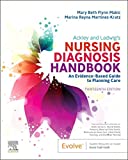
Nursing Care Plans – Nursing Diagnosis & Intervention (10th Edition)
Includes over two hundred care plans that reflect the most recent evidence-based guidelines. New to this edition are ICNP diagnoses, care plans on LGBTQ health issues, and on electrolytes and acid-base balance.
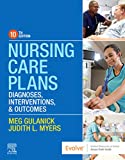
Nurse’s Pocket Guide: Diagnoses, Prioritized Interventions, and Rationales
Quick-reference tool includes all you need to identify the correct diagnoses for efficient patient care planning. The sixteenth edition includes the most recent nursing diagnoses and interventions and an alphabetized listing of nursing diagnoses covering more than 400 disorders.

Nursing Diagnosis Manual: Planning, Individualizing, and Documenting Client Care
Identify interventions to plan, individualize, and document care for more than 800 diseases and disorders. Only in the Nursing Diagnosis Manual will you find for each diagnosis subjectively and objectively – sample clinical applications, prioritized action/interventions with rationales – a documentation section, and much more!
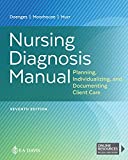
All-in-One Nursing Care Planning Resource – E-Book: Medical-Surgical, Pediatric, Maternity, and Psychiatric-Mental Health
Includes over 100 care plans for medical-surgical, maternity/OB, pediatrics, and psychiatric and mental health. Interprofessional “patient problems” focus familiarizes you with how to speak to patients.
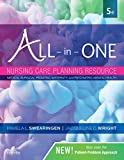
See also
Other recommended site resources for this nursing care plan:
- Nursing Care Plans (NCP): Ultimate Guide and Database MUST READ!
Over 150+ nursing care plans for different diseases and conditions. Includes our easy-to-follow guide on how to create nursing care plans from scratch. - Nursing Diagnosis Guide and List: All You Need to Know to Master Diagnosing
Our comprehensive guide on how to create and write diagnostic labels. Includes detailed nursing care plan guides for common nursing diagnostic labels.
Other nursing care plans related to neurological disorders:
- Alzheimer’s Disease | 15 Care Plans
- Brain Tumor | 3 Care Plans
- Cerebral Palsy | 7 Care Plans
- Cerebrovascular Accident | 12 Care Plans
- Guillain-Barre Syndrome | 6 Care Plans
- Meningitis | 7 Care Plans
- Multiple Sclerosis | 9 Care Plans
- Parkinson’s Disease | 9 Care Plans
- Seizure Disorder | 4 Care Plans
- Spinal Cord Injury | 12 Care Plans
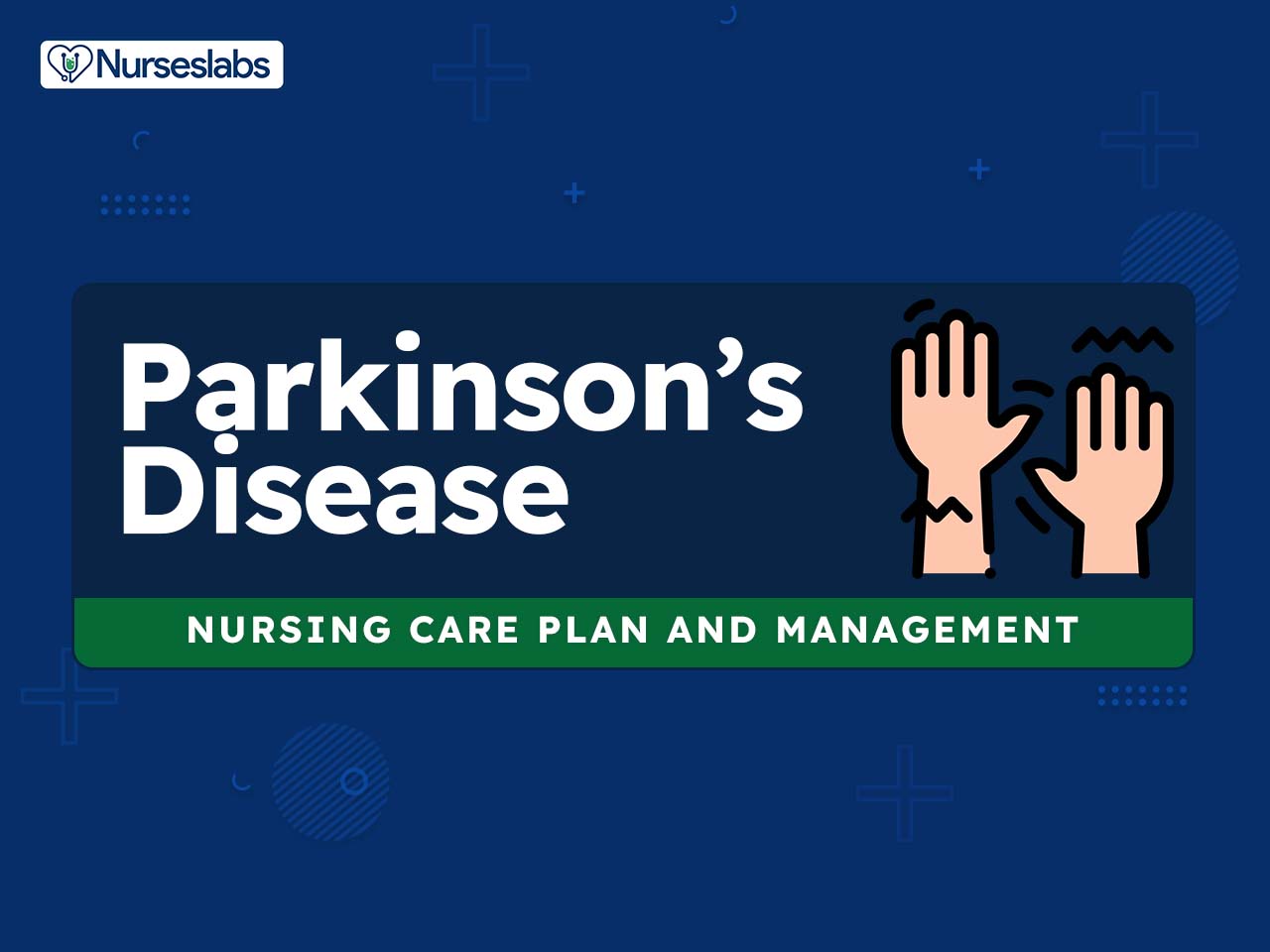
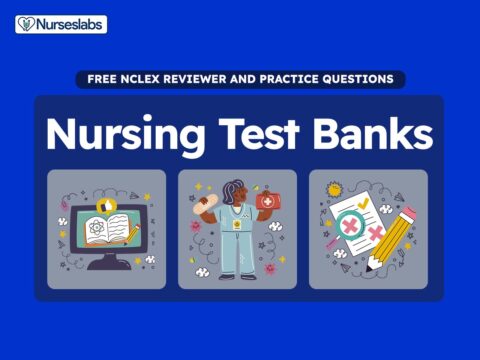
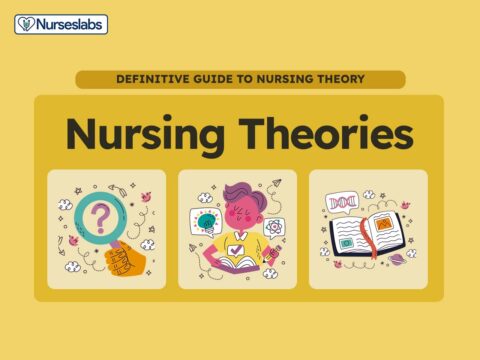
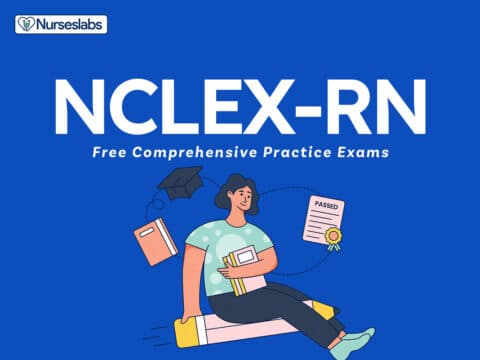
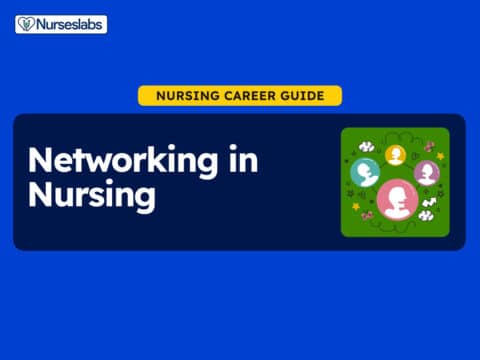




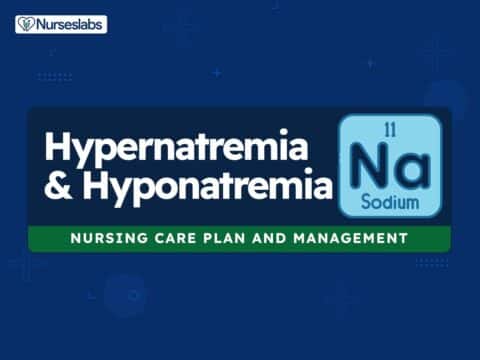


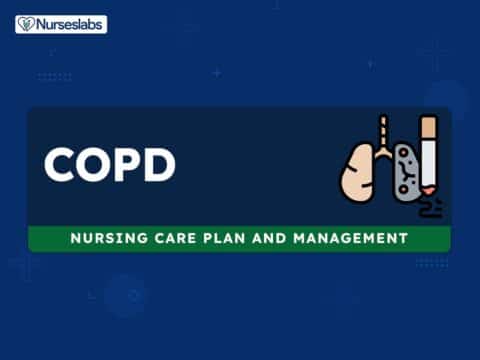
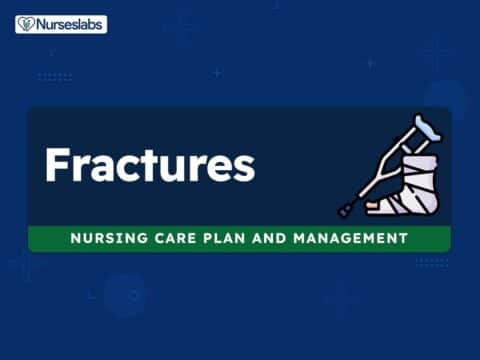

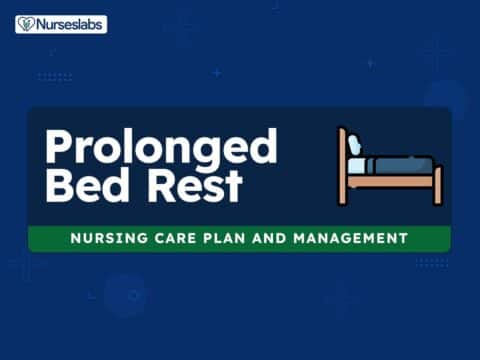
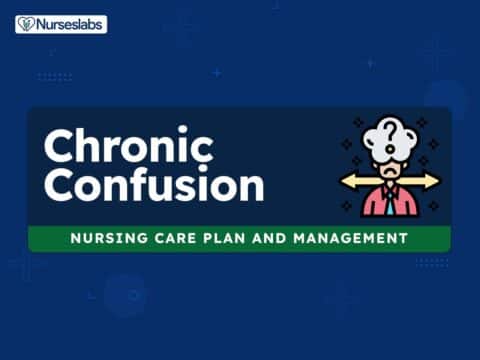
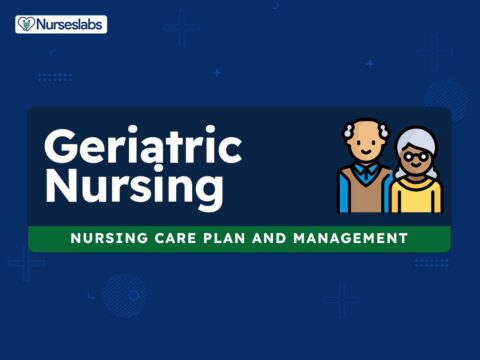
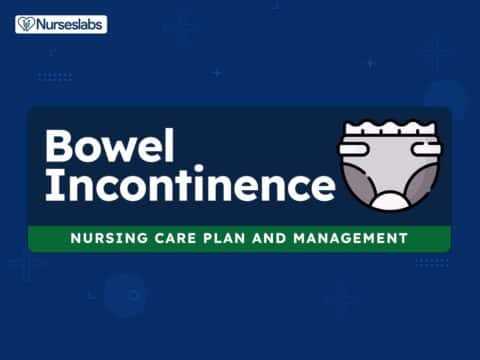
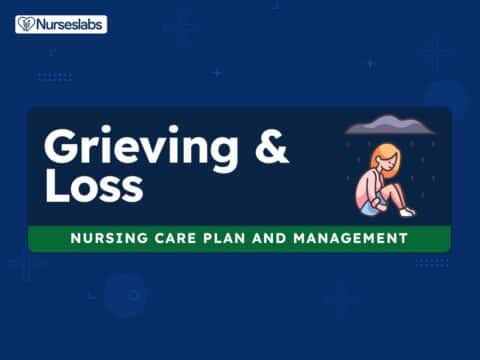
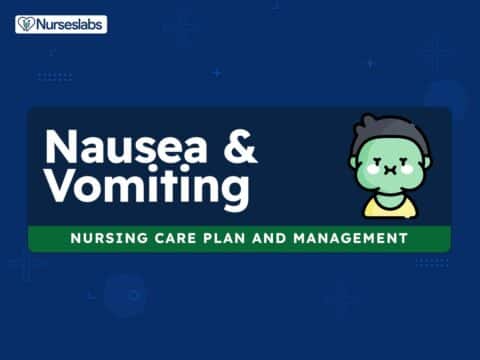
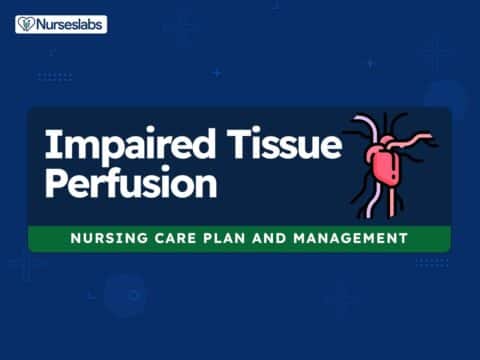

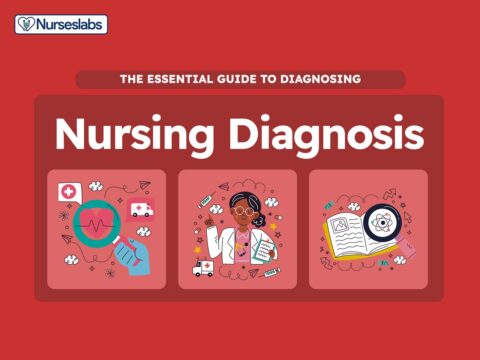
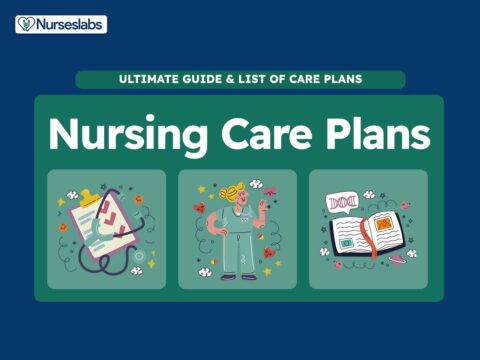
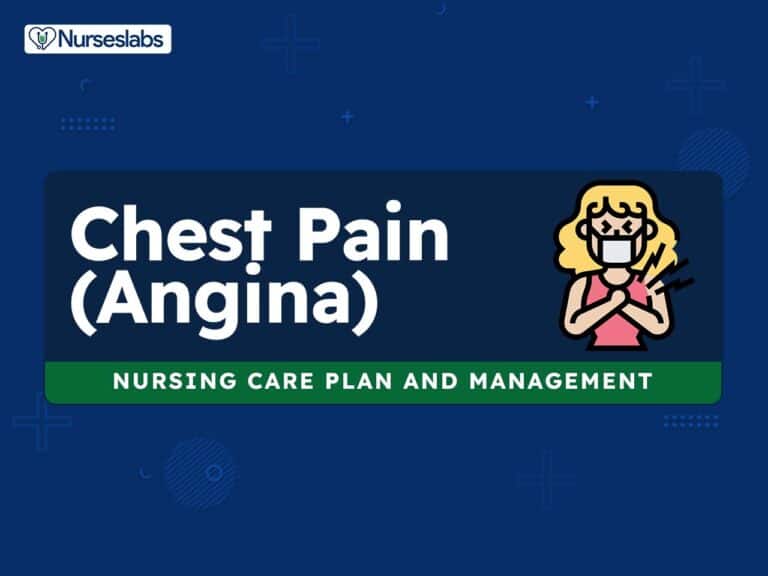


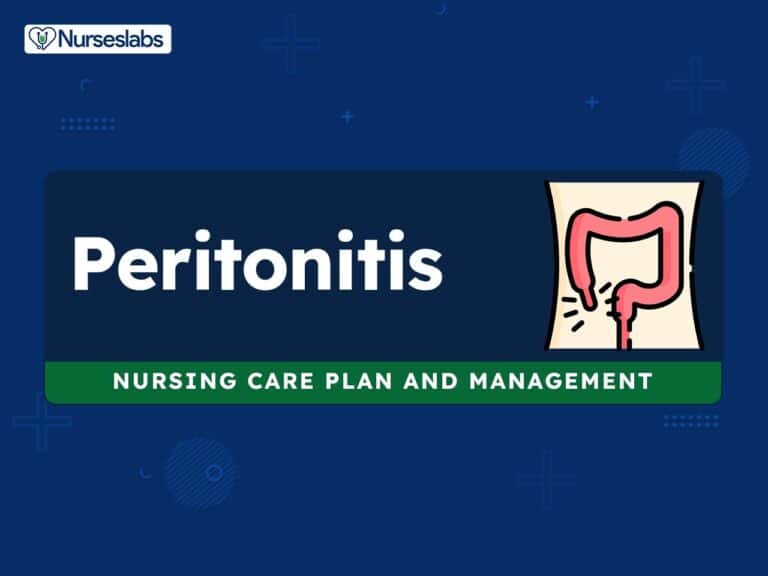
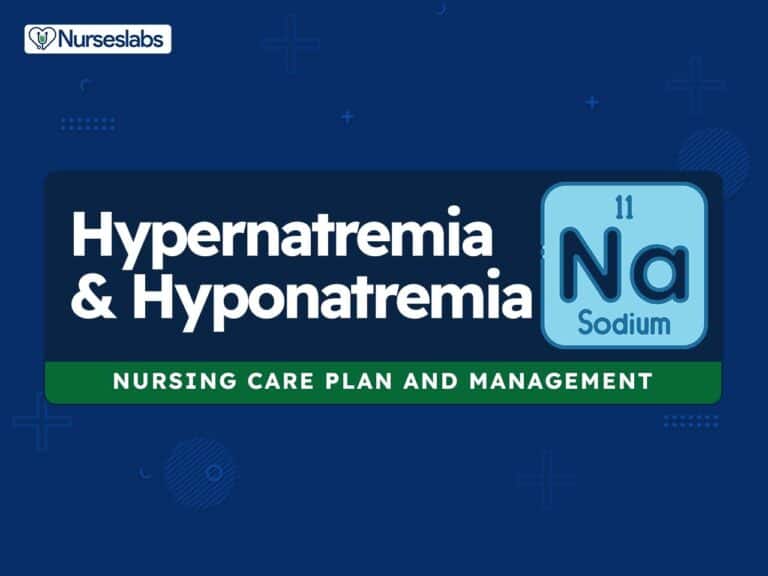
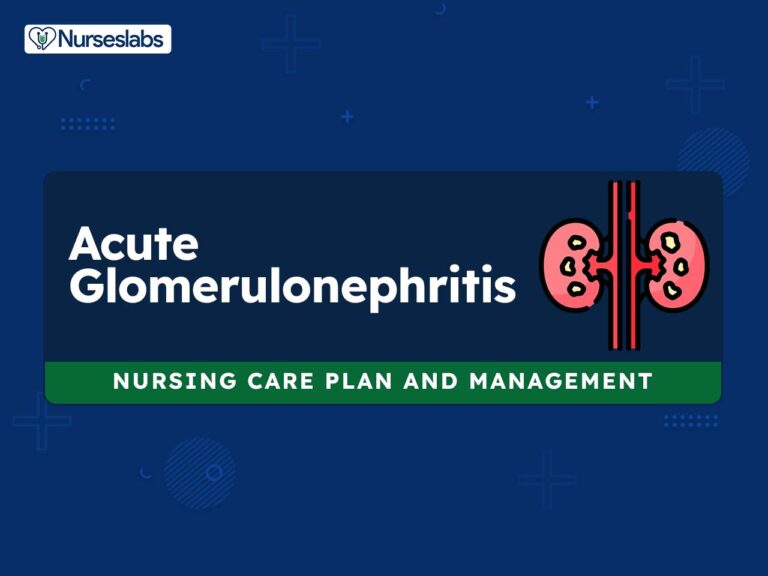

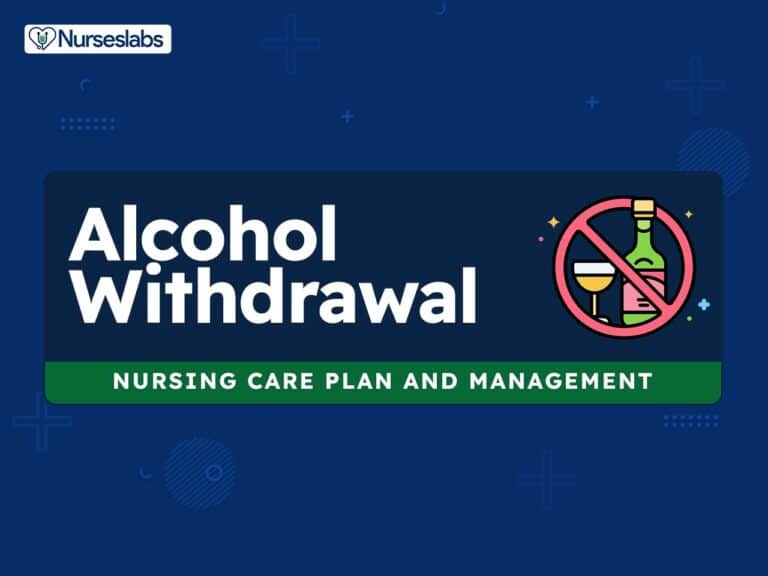
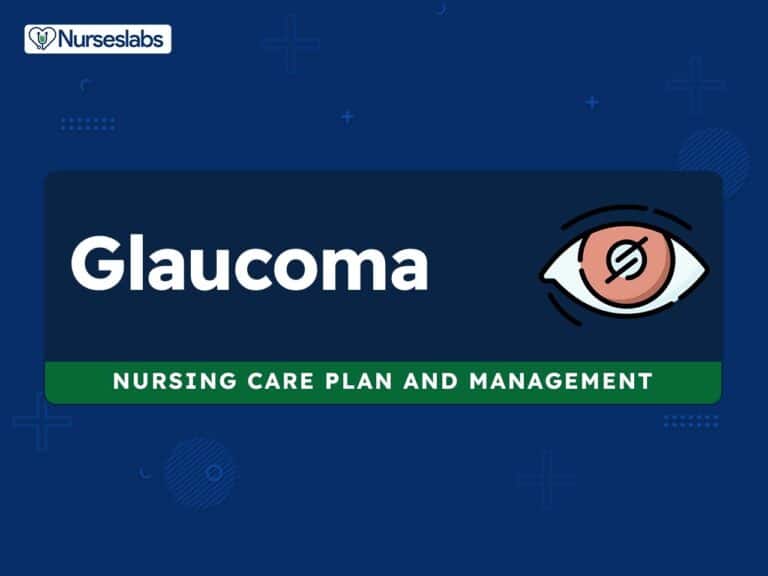
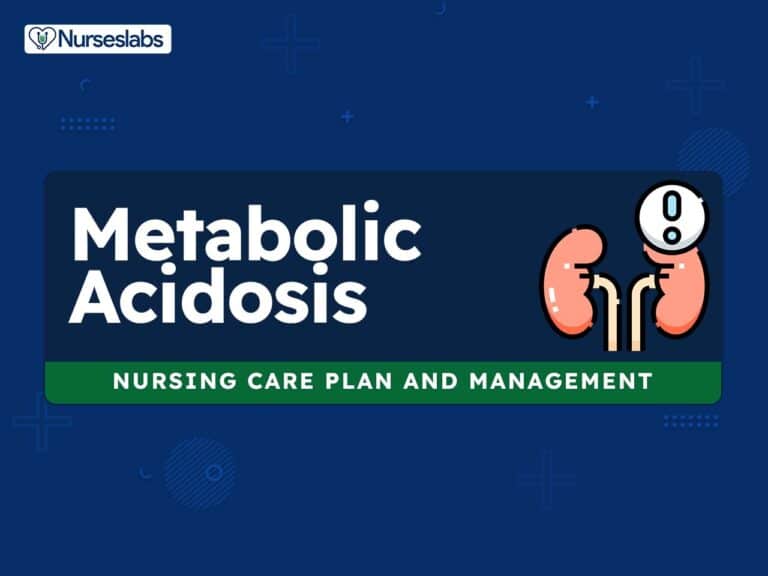
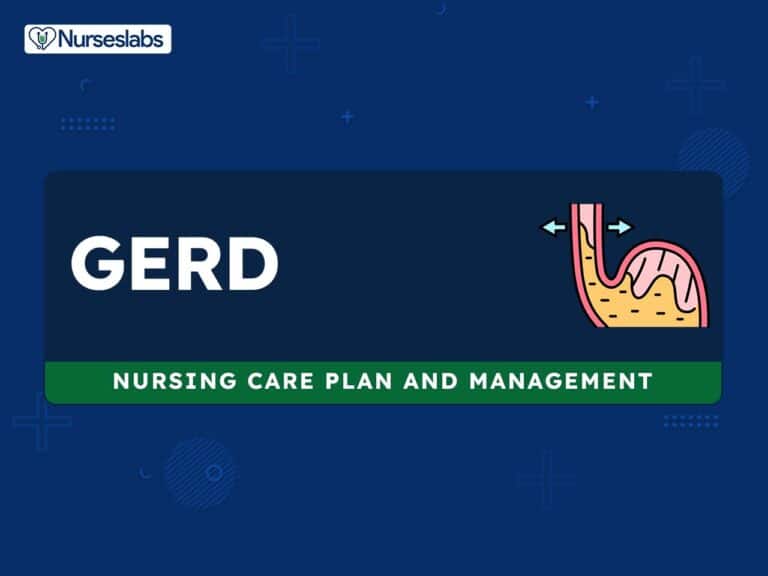
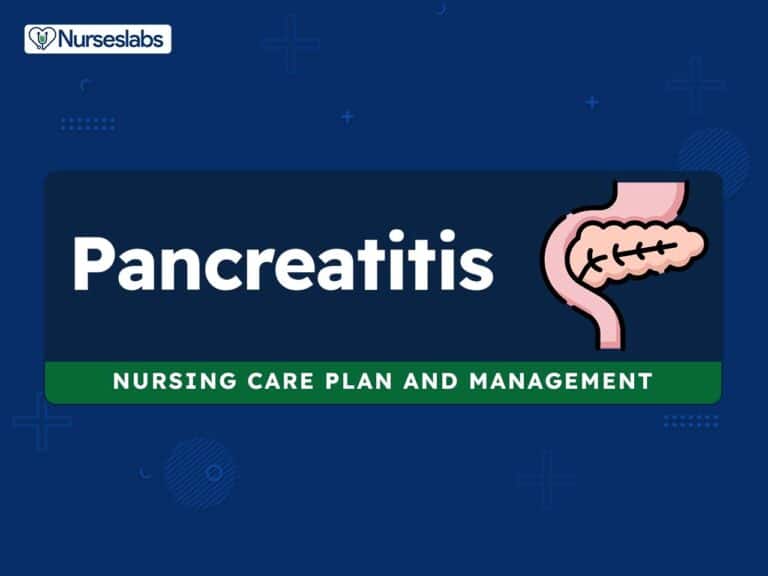
Leave a Comment